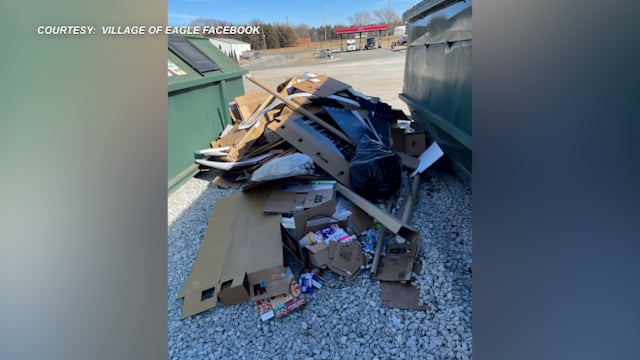Farmers use food to keep their cultures alive in Lincoln
LINCOLN, Neb. (KLKN) – Farmers of various nationalities grow fruits and vegetables in Lincoln.
Some sell them at farmers markets, and some of the produce ends up in ethnic stores like the Sara Market.
“It makes it feel more like home,” said Sara Almusawy, daughter of the owner of Sara Market. “We have the stuff from where people immigrated from.”
She said that not only helps the farmers make a profit, but helps consumers find things they can’t get anywhere else.
Naji Alhilfy, a shopper at Sara Market, said 50% of the vegetables there aren’t available there.
“And the other thing is they look fresh,” Alhilfy said.
For many immigrant families, it is important to find items they would have in their native land to enjoy the tastes and smells of home.
“We also sell grape leaves. There is a really popular dish that is called Dolma, and we use fresh meat and a lot of vegetables like spinach or dill. We wrap it, and it’s a popular dish,” Almusawy said.
SEE ALSO: Lincoln organic farmers took pandemic hit, but interest in farm-to-table is bright spot
Prairie Pines, a place where people can grow food in a plot of their own, has farmers of Asian, African, Yazidi, Iraqi and Iranian descent are keeping their cultures alive with food.
The mixture of cultures at Prairie Pines allows them to learn new techniques.
“We are learning from each other,” said Eugene Ekinde, who grows African produce. “Personally, I learned how to grow tomatoes better.”
These farmers have smaller, organic crops.
Ekinde said some vegetables, like eggplant, were smaller this year than in years past, but they didn’t suffer from the drought as much as larger crops.
The problem for these farmers is that they struggle with finding support to grow their business.
“Two main challenges: insect problem and the herbs,” Ekinde said. “The time that we would have used to dedicate to the vegetables, we use half of that time to fight the weeds.”
Ekinde said farmers like him, who don’t have a direct connection with stores or restaurants, would love to go to farmers markets but just don’t have time to farm and sell the food.
“I may need an extra hand if there was the means to pay somebody,” he said. “Then we can supply more food to the community.”


